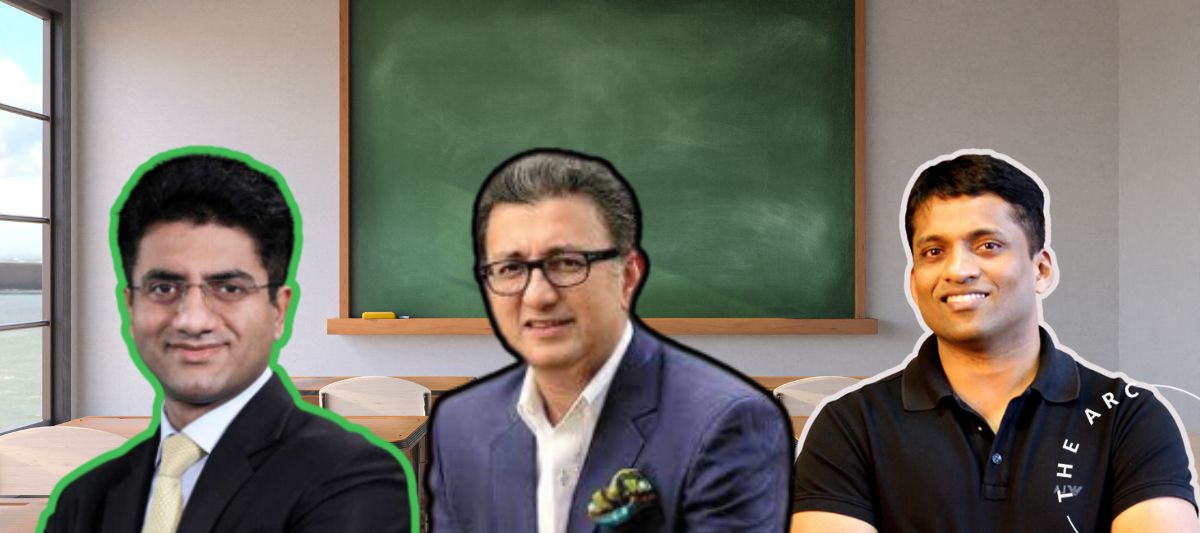The transfer of US hedge fund Davidson Kempner’s stake in test-prep company Aakash to hospital chain Manipal Group chairman Ranjan Pai is a significant move in the EdTech space. This calculated action is a component of a larger deal with Byju’s, the well-known EdTech company that controls Aakash. The transaction has significance for the parties involved in addition to representing a change in the financial landscape.

Credits: The Arc
Background: The Byju’s and Aakash Connection
Formerly known as Think & Learn, Byju’s has been a significant player in the EdTech sector. Byju’s has been at the forefront of changing the traditional education scene in India with its wide range of educational programs. Byju’s position in the industry was further enhanced with the purchase of the well-known test-prep company Aakash.
Davidson Kempner became involved because of the structured debt that Byju’s received. Due to this debt arrangement, the hedge fund’s stakes in Aakash were transferred to Ranjan Pai. This decision may have wider ramifications for Byju’s and Aakash.
The Deal Unveiled: Details and Dynamics
Davidson Kempner’s exit from Aakash involves the transfer of its holdings to Ranjan Pai, the chairperson of Manipal Group. The dynamics of this transaction reveal that Davidson Kempner’s holdings were a result of structured debt provided to Byju’s, making this a multifaceted deal. The reported amount paid by Pai for the stake is Rs 1,400 crore ($168 million), marking a significant financial transaction in the EdTech space.
Notably, this deal is the initial step in addressing a stalemate between Byju’s and Aakash’s shareholders, which had hindered Byju’s from gaining complete control of the asset. The intricate details suggest that Davidson Kempner is making a return of 75% in just six months, having initially extended Rs 800 crore ($96 million) in debt to Byju’s in May.
Stakeholders and Holdings: A Complex Puzzle
Davidson Kempner used debt guarantees to hold a sizable 27% share in Aakash. Ranjan Pai is anticipated to acquire two board seats and eventually hold 30–35% of Aakash as a result of this move. The promoters of Aakash, the Chaudhry family, possess 18% of the company, while important investor Blackstone has 12%. It is said that Byju’s next goal is to make it easier for these remaining shares to be transferred, especially those from Blackstone and the Chaudhry family.
According to the agreements agreed upon, Pai is expected to own a sizable portion of Aakash, the Chaudhrys may keep 8–9% of the company, and Blackstone will withdraw completely. Reportedly, Aakash Chaudhry will take over as CEO of the company once more, suggesting a possible reorganization of the executive team.
The Impact and Future Prospects
The acquisition by Ranjan Pai is not just a financial transaction; it holds the potential to reshape the EdTech landscape in India. Byju’s, backed by Pai’s involvement, gains not only financial leverage but also strategic support. Pai’s previous role as the first investor in Think & Learn adds depth to his involvement in the Aakash acquisition, giving Byju Raveendran, the founder of Byju’s, much-needed maneuverability amid a financial crisis.
This move is not merely a shift in ownership; it’s a strategic realignment. Byju’s quest for proper control of Aakash is evident, and the acquisition of Davidson Kempner’s stake is a crucial step in that direction. The reported 75% return for Davidson Kempner within six months highlights the financial gains that can be realized in the dynamic EdTech market.
Challenges and Anticipated Changes
While the deal appears to be progressing smoothly, the final word from the Competition Commission of India (CCI) is still awaited. The involvement of regulatory bodies in such transactions is common, and any decision by the CCI will likely shape the trajectory of this acquisition.
Byju’s next challenge lies in facilitating the transfer of remaining shares from Aakash’s promoters and investors like Blackstone. The negotiation and execution of these transfers will play a crucial role in determining the future composition of Aakash’s ownership structure.
Conclusion: Navigating the EdTech Landscape
The EdTech scene in India could change significantly when Ranjan Pai assumes leadership of a sizable portion of Aakash. Byju’s is well-positioned to hold onto its leadership position thanks to financial support and strategic acquisitions. In the fast-paced field of EdTech, this acquisition is remarkable due to the involvement of important parties, complex financial transactions, and regulatory considerations. The consequences of this approach will surely be felt far beyond the boardrooms of Byju’s and Aakash, as stakeholders await the CCI’s ultimate verdict.











